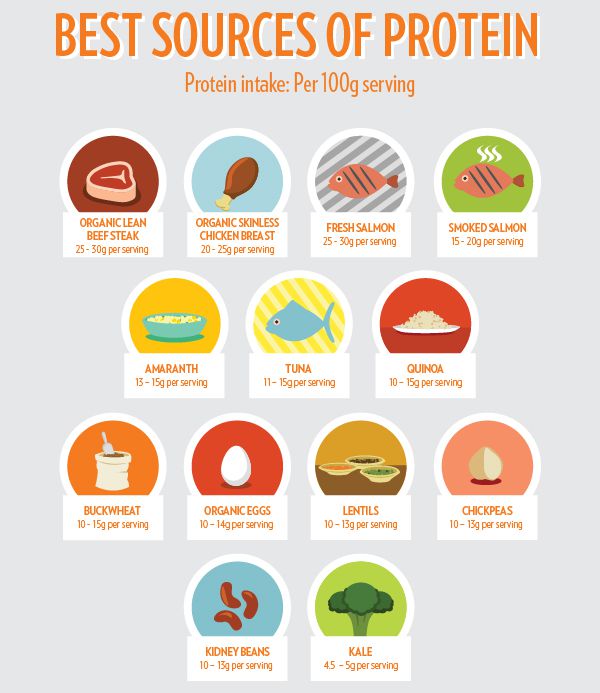
When protein is appropriately implemented into our diets, it can help us stay healthy, trim and energetic.
Simply put, protein is a very important nutrient that we must get enough of in order for our bodies to remain in good condition. Unfortunately, as with so many other important nutrients, people can neglect getting the necessary amount.
HERE ARE SOME SIGNS THAT YOU MAY HAVE A PROTEIN DEFICIENCY:
1. CRAVING UNHEALTHY FOODS
Without adequate protein, we are much more likely to crave non-nutritional foods. This is because our blood sugar is off kilter, tempting us to reach for carb-heavy and sugar-laden foods such as chocolate, candy, potato chips, pastries, soda and so forth.
If this happens, we should resist the urge to indulge and get a healthy snack with a good amount of protein. Examples of such snacks are nuts, seeds, tempeh, natural peanut butter, oatmeal, Coconut greek yogurt, and hummus. Of course, this is not an exhaustive list, but all are foods that are quite easily accessible.
2. JOINT AND/OR MUSCLE PAIN
Since protein serves such an imperative role in sustaining our muscles, this side effect is not surprising in the least. Much of our protein is stored in what is called synovial fluid, located around our joints. Synovial fluid plays an important role in rebuilding muscles and lubricating our joints. When protein levels are low, reserves of protein stored in synovial fluid are often the first to be depleted. When this happens, joint stiffness and muscle pain is likely to result.
If this occurs, one is best served to eat a meal or snack that is rich in protein. If this protocol is followed, within the matter of a few hours, the pain once located in our muscles and/or joints should diminish significantly.
3. LOW ENERGY
As mentioned, low protein levels wreak havoc on our blood sugar levels. Without protein to stabilize blood sugar, our energy levels tank. Further, insufficient protein often leads to episodes of moodiness as well as a decreased ability to manage the stress that we encounter throughout the day. As a result, our bodies are devoid of the necessary elements to calm down.
The takeaway: our bodies need protein in order to be calm and composed, and to get ourselves through the day with efficiently and productively.
4. INABILITY TO SLEEP
As stated in item number one, the body will crave carbs and sugar without sufficient protein. This is true even when body shuts down in anticipation of sleep. When our heads finally do hit the pillow, our bodies will still crave necessary nutrition in the form of protein. Normally, individuals that do not get enough of the nutrient make a bad habit out of it. Unfortunately, this habit carries over to sleep when the body needs fuel in the form of healthy fats (generally derived from protein) in order to remain in a state of sleep.
--School-age children: 19-34 grams
– Teenage girls: up to 46 grams
– Teenage boys: up to 52 grams
– Adult women: about 46 grams (71 grams if pregnant or breastfeeding)
– Adult men: about 56 grams
There are many different ways to get our recommended amount of protein. Some of these sources include: beans, soy products, greens, tempeh, and lean meat choices.
When this is neglected, the body will naturally seek supplementation; waking us up in order for us to fulfill its needs. This results in a state of wakefulness and an inability to sleep.
5. FREQUENT ILLNESS
Protein is an important nutrient for sustainment of a healthy immune system. This is because our blood requires sufficient protein to perform necessary functions – namely killing off the nasty and unwelcome trespassers that enter our bloodstream. White blood cells, for example, are protein-rich blood types responsible for seeking out and eliminating these unhealthy agents. Antibodies contained in white blood cells need protein in order to perform this function.
Without sufficient protein, our bodies’ ability to seek out and eliminate bacteria or viruses is drastically reduced. Naturally, this development makes the human body more susceptible to various illnesses.
6. INABILITY TO FOCUS
Protein is responsible for the health of various neurotransmitters in the brain. This is unsurprising since our brain’s neurons are made mostly of fat; with protein being the primary source of the healthy fat variety. Further, amino acids – the building blocks of protein – make up the foundation of our brain’s chemical receptors. Simply put, what we eat ultimately determines the nerve chemicals that will dominate these brain pathways, affecting how we feel.
Ingesting a heavy dose of carbohydrates ultimately makes us feel more sluggish because they increase the level of the amino acid tryptophan, which puts the brain in a ‘calm’ state. Lastly, eating protein raises levels of certain amino acids that initiate the production of norepinephrine and dopamine. These two chemical messengers keep us energized and productive, since they play a key role in brain activity and alertness.
It is truly a well-researched content and excellent wording. I got so engaged in this material that I couldn’t wait reading. I am impressed with your work and skill. Thanks. dr oz diet capsules
ReplyDelete